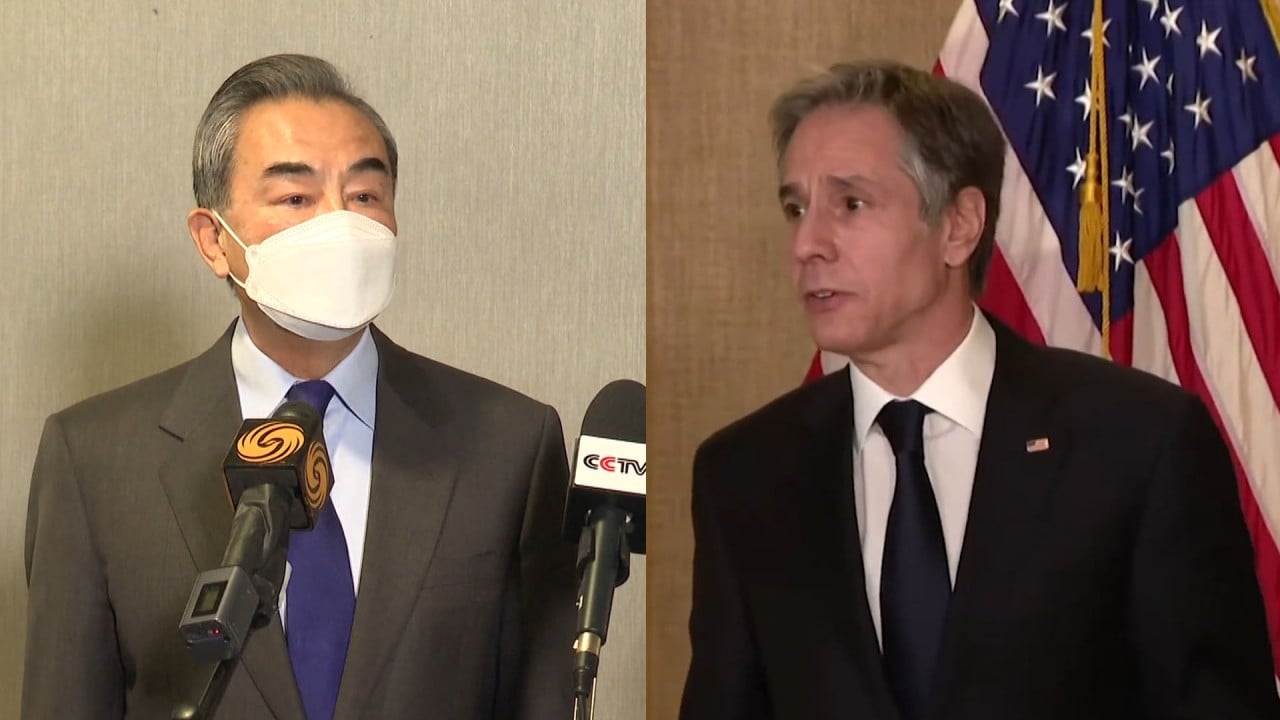
Why was the PLA at the China-US talks in Alaska?
- Members of the Chinese armed forces played an important support role at the top-level talks, a military source says
- The PLA presence also sent a message about hopes for a better relationship with the Pentagon, the source says
A Chinese military source said this presence indicated that Beijing was eager to develop the talks into a strategic dialogue and prevent accidental military conflicts.
The source said the People’s Liberation Army offered advice on Afghanistan, Iran, North Korea, as well as efforts to prevent accidental military conflicts in the Taiwan Strait and the South China Sea.
“The Chinese foreign ministry played the leading role in the Alaska talks, while the Office for International Military Cooperation also sent officials to give support,” the source said referring to the Central Military Commission department that oversees military diplomacy.
“The PLA has played a role in Afghanistan, Iran, and North Korea, areas where the interests of China and the United States intersect.”

04:07
Alaska summit: China tells US not to underestimate Beijing’s will to safeguard national dignity
“The US is concerned that other great powers like China and Russia will fill the military and economic vacuum in the aftermath of US troops’ withdrawal. But Beijing is not interested in replacing American’s role in Afghanistan and the Middle East, meaning there is room for the two countries to cooperate in this area,” the source said.
“The attendance of PLA officials at the Alaska talks was also aimed at showing the PLA’s desire to foster a better military-to-military relationship with its US counterpart.”
Alaska summit: for China and the US, a narrow road through deep divisions
Despite the US and Chinese representatives trading barbs at the start of the talks, both sides said they had a “very candid conversation” on topics where their interests intersected, including Iran, North Korea, Afghanistan and climate change.
However, Chinese official media outlets described the Alaska summit as “strategic dialogue” while the US side played them down by referring to them as “high-level talks”.
Drew Thompson, a former US Defence Department official and a senior research fellow at the Lee Kuan Yew School of Public Policy in Singapore, said Beijing might want to use the Alaska summit as propaganda for a domestic audience while the US preferred to focus on border strategic issues.
“The Biden administration is understandably not interested in committing to high-level, structured discussions that don’t produce results and only result in lengthy harangues intended for a domestic audience,” Thomson said.

02:23
Gloves off at top-level US-China summit in Alaska with on-camera sparring
The military source said the Chinese delegation also raised the possibility of resuming high-level military-to-military communication to avoid accidental military conflicts as the two armed forces increased their activities in the East and South China seas.
The high-level military-to-military communication mechanism between the PLA and Pentagon was halted in November after the PLA’s failure to show up at a virtual maritime security meeting with the chief of the US Indo-Pacific Command.
Shi Yinhong, an international relations professor at Renmin University, said the potential for accidental military conflicts would grow if the two sides did not resume military talks over safety engagements in the air and on the high seas.
“The problem is, it seems like both sides’ leadership have other political agendas,” Shi said.
However, Thomson said the professionalism of the Pentagon would help avoid any crisis from happening, even though there was no sign of any significant results from the Alaska talks.

